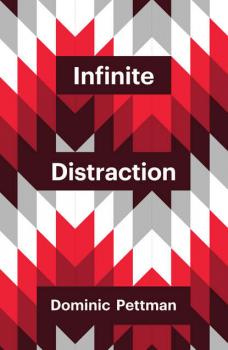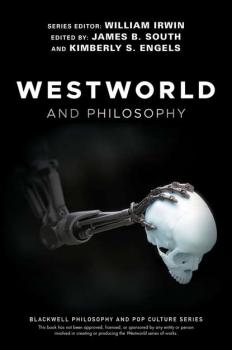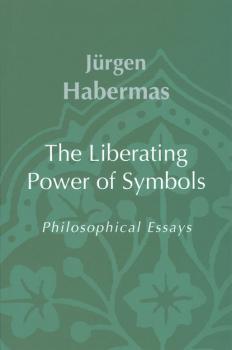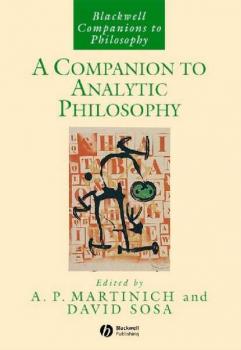ТОП просматриваемых книг сайта:
Философия
Различные книги в жанре Философия, доступные для чтения и скачиванияАннотация
It is often argued that contemporary media homogenize our thoughts and actions, without us being fully aware of the restrictions they impose. But what if the problem is not that we are all synchronized to the same motions or moments, but rather dispersed into countless different emotional micro-experiences? What if the effect of so-called social media is to calibrate the interactive spectacle so that we never fully feel the same way as other potential allies at the same time? While one person is fuming about economic injustice or climate change denial, another is giggling at a cute cat video. And, two hours late, vice versa. The nebulous indignation which constitutes the very fuel of true social change can be redirected safely around the network, avoiding any dangerous surges of radical activity. In this short and provocative book, Dominic Pettman examines the deliberate deployment of what he calls 'hypermodulation,' as a key strategy encoded into the contemporary media environment. His account challenges the various narratives that portray social media as a sinister space of synchronized attention, in which we are busily clicking ourselves to death. This critical reflection on the unprecedented power of the Internet requires us to rethink the potential for infinite distraction that our latest technologies now allow.
Аннотация
What objects exist in the social world and how should we understand them? Is a specific Pizza Hut restaurant as real as the employees, tables, napkins and pizzas of which it is composed, and as real as the Pizza Hut corporation with its headquarters in Wichita, the United States, the planet Earth and the social and economic impact of the restaurant on the lives of its employees and customers? In this book the founder of object-oriented philosophy develops his approach in order to shed light on the nature and status of objects in social life. While it is often assumed that an interest in objects amounts to a form of materialism, Harman rejects this view and develops instead an “immaterialist” method. By examining the work of leading contemporary thinkers such as Bruno Latour and Levi Bryant, he develops a forceful critique of ‘actor-network theory’. In an extended discussion of Leibniz’s famous example of the Dutch East India Company, Harman argues that this company qualifies for objecthood neither through ‘what it is’ or ‘what it does’, but through its irreducibility to either of these forms. The phases of its life, argues Harman, are not demarcated primarily by dramatic incidents but by moments of symbiosis, a term he draws from the biologist Lynn Margulis. This book provides a key counterpoint to the now ubiquitous social theories of constant change, holistic networks, performative identities, and the construction of things by human practice. It will appeal to anyone interested in cutting-edge debates in philosophy and social and cultural theory.
Аннотация
Berto’s highly readable and lucid guide introduces students and the interested reader to Gödel’s celebrated Incompleteness Theorem, and discusses some of the most famous – and infamous – claims arising from Gödel's arguments. Offers a clear understanding of this difficult subject by presenting each of the key steps of the Theorem in separate chapters Discusses interpretations of the Theorem made by celebrated contemporary thinkers Sheds light on the wider extra-mathematical and philosophical implications of Gödel’s theories Written in an accessible, non-technical style
Аннотация
“We can’t define consciousness because consciousness does not exist. Humans fancy that there’s something special about the way we perceive the world, and yet we live in loops as tight and as closed as the hosts do, seldom questioning our choices, content, for the most part, to be told what to do next.” —Dr. Robert Ford, Westworld Have you ever questioned the nature of your reality? HBO’s Westworld, a high-concept cerebral television series which explores the emergence of artificial consciousness at a futuristic amusement park, raises numerous questions about the nature of consciousness and its bearing on the divide between authentic and artificial life. Are our choices our own? What is the relationship between the mind and the body? Why do violent delights have violent ends? Could machines ever have the moral edge over man? Does consciousness create humanity, or humanity consciousness? In Westworld and Philosophy, philosophers, filmmakers, scientists, activists, and ethicists ask the questions you’re not supposed to ask and suggest the answers you’re not supposed to know. There’s a deeper level to this game, and this book charts a course through the maze of the mind, examining how we think about humans, hosts, and the world around us on a journey toward self-actualization. Essays explore different facets of the show’s philosophical puzzles, including the nature of autonomy as well as the pursuit of liberation and free thought, while levying a critical eye at the human example as Westworld’s hosts ascend to their apotheosis in a world scarred and defined by violent acts. The perfect companion for Westworld fans who want to exit the park and bend their minds around the philosophy behind the scenes, Westworld and Philosophy will enrich the experience of the show for its viewers and shed new light on its enigmatic twists and turns.
Аннотация
In this new collection of lectures and essays Jurgen Habermas engages with a wide range of figures in twentieth-century thought. The book displays once again his ability to capture the essence of a thinker's work, his feeling for the texture of intellectual traditions and his outstanding powers of critical assessment. Habermas has described these essays as 'fragments of a history of contemporary philosophy'. The volume includes explorations of the work of Ernst Cassirer, Karl Jaspers and Gershom Scholem, as well as reponses to friends and colleagues such as Michael Thuenissen, Karl-Otto Apel and the writer and film-maker Alexander Kluge. It also includes pieces on the Finnish philosopher Georg Henrik von Wright and the theologian Johann Baptist Metz. This new volume will be an invaluable resource for students and scholars of Habermas and twentieth-century philosophy.
Аннотация
In this major new work, Bernstein explores the ethical and political dimensions of the modernity/post-modernity debate. Bernstein argues that modernity / post-modernity should be understood as a kind of mood – one which is amorphous, shifting and protean but which exerts a powerful influence on our current thinking. Focusing on thinkers such as Heidegger, Derrida, Foucault, Habermas and Rorty, Bernstein probes the strengths and weaknesses of their work, and shows how they have contributed to the formation of a new mood, a new and distinctive constellation of ideas. This new constellation has put ethical and political issues back on the philosophical agenda, forcing us to confront anew, the Socratic question 'How should I live?'
Аннотация
In The Excessive Subject: A New Theory of Social Change, Molly Anne Rothenberg uncovers an innovative theory of social change implicit in the writings of radical social theorists, such as Pierre Bourdieu, Michel de Certeau, Judith Butler, Ernesto Laclau, and Slavoj ?i?ek. Through case studies of these writers' work, Rothenberg illuminates how this new theory calls into question currently accepted views of social practices, subject formation, democratic interaction, hegemony, political solidarity, revolutionary acts, and the ethics of alterity. Finding a common dissatisfaction with the dominant paradigms of social structures in the authors she discusses, Rothenberg goes on to show that each of these thinkers makes use of Lacan's investigations of the causality of subjectivity in an effort to find an alternative paradigm. Labeling this paradigm 'extimate causality', Rothenberg demonstrates how it produces a nondeterminacy, so that every subject bears some excess; paradoxically, this excess is what structures the social field itself. Whilst other theories of social change, subject formation, and political alliance invariably conceive of the elimination of this excess as necessary to their projects, the theory of extimate causality makes clear that it is ineradicable. To imagine otherwise is to be held hostage to a politics of fantasy. As she examines the importance as well as the limitations of theories that put extimate causality to work, Rothenberg reveals how the excess of the subject promises a new theory of social change. By bringing these prominent thinkers together for the first time in one volume, this landmark text will be sure to ignite debate among scholars in the field, as well as being an indispensable tool for students.
Аннотация
Contract and Domination offers a bold challenge to contemporary contract theory, arguing that it should either be fundamentally rethought or abandoned altogether. Since the publication of John Rawls's A Theory of Justice, contract theory has once again become central to the Western political tradition. But gender justice is neglected and racial justice almost completely ignored. Carole Pateman and Charles Mills's earlier books, The Sexual Contract (1988) and The Racial Contract (1997), offered devastating critiques of gender and racial domination and the contemporary contract tradition's silence on them. Both books have become classics of revisionist radical democratic political theory. Now Pateman and Mills are collaborating for the first time in an interdisciplinary volume, drawing on their insights from political science and philosophy. They are building on but going beyond their earlier work to bring the sexual and racial contracts together. In Contract and Domination, Pateman and Mills discuss their differences about contract theory and whether it has a useful future, excavate the (white) settler contract that created new civil societies in North America and Australia, argue via a non-ideal contract for reparations to black Americans, confront the evasions of contemporary contract theorists, explore the intersections of gender and race and the global sexual-racial contract, and reply to their critics. This iconoclastic book throws the gauntlet down to mainstream white male contract theory. It is vital reading for anyone with an interest in political theory and political philosophy, and the systems of male and racial domination.
Аннотация
A Companion to Analytic Philosophy is a comprehensive guide to many significant analytic philosophers and concepts of the last hundred years. Provides a comprehensive guide to many of the most significant analytic philosophers of the last one hundred years. Offers clear and extensive analysis of profound concepts such as truth, goodness, knowledge, and beauty. Written by some of the most distinguished philosophers alive, some of whom have entries in the book devoted to them.
Аннотация
Michel Foucault's The Archaeology of Knowledge was published in March 1969; Discipline and Punish in February 1975. Although only six years apart, the difference in tone is stark: the former is a methodological treatise, the latter a call to arms. What accounts for the radical shift in Foucault's approach? Foucault's time in Tunisia had been a political awakening for him, and he returned to a France much changed by the turmoil of 1968. He taught at the experimental University of Vincennes and then moved to a prestigious position at the Collège de France. He quickly became involved in activist work concerning prisons and health issues such as abortion rights, and in his seminars he built research teams to conduct collaborative work, often around issues related to his lectures and activism. Foucault: The Birth of Power makes use of a range of archival material, including newly available documents at the Bibliothèque nationale de France, to provide a detailed intellectual history of Foucault as writer, researcher, lecturer and activist. Through a careful reconstruction of Foucault's work and preoccupations, Elden shows that, while Discipline and Punish may be the major published output of this period, it rests on a much wider range of concerns and projects.










